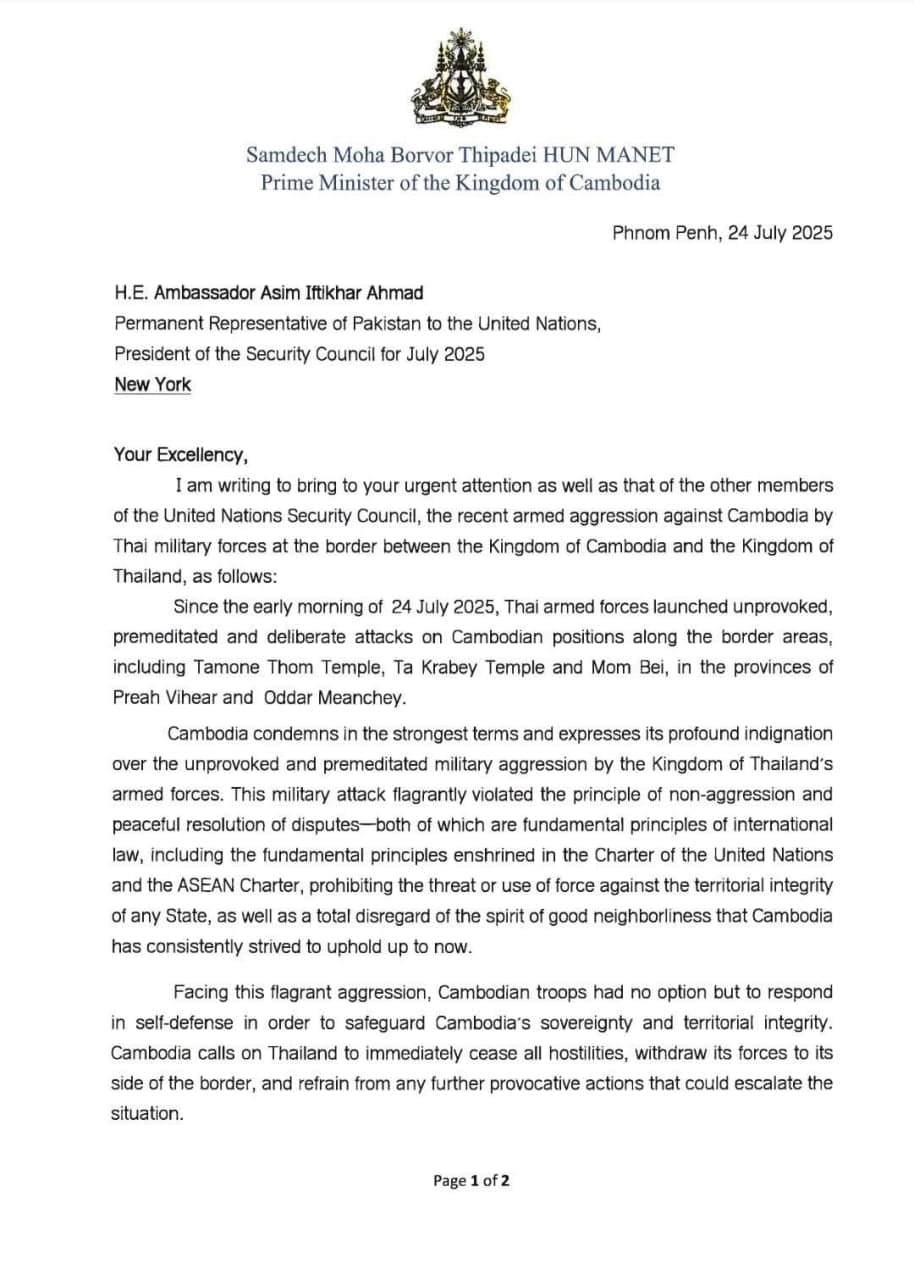Cambodian PM Calls for Urgent UN Meeting Over Thailand"s "Deliberate Attack"
In a dramatic escalation of tensions in Southeast Asia, Cambodian Prime Minister Hun Manet has urgently requested the United Nations Security Council convene a meeting to address what he describes as an “unprovoked, premeditated and deliberate attack on Cambodia” by Thailand. This call comes in the wake of an early morning incident along the border that has reignited a long-standing territorial dispute between the two nations, raising concerns over regional stability and international diplomatic relations.
The border dispute, which has historical roots dating back decades, has seen sporadic flare-ups. However, the recent events have intensified fears of a larger conflict. Onlookers are reminded of previous reports detailing similar situations, such as the Cambodia"s Defense Ministry"s claims of repelling a Thai army border attack earlier this year, which underlined the fragile peace between the two countries. Prime Minister Hun Manet"s urgent appeal underscores the seriousness of the situation and the Cambodian government"s determination to seek international support against perceived aggression.
Details surrounding the incident remain murky, but sources indicate that Cambodian forces were engaged in a confrontation with Thai troops early this morning. Hun Manet characterized the actions of the Thai military as “deliberate” and accused them of violating Cambodian sovereignty. In a statement, he expressed, “We will not tolerate any form of aggression against our nation. It is imperative for the international community to recognize this act and respond appropriately.” The Prime Minister"s strong rhetoric signals a potential shift in Cambodia"s approach to regional diplomacy, emphasizing a more assertive stance in the face of perceived threats.
Experts suggest that the ongoing conflict may not only reflect bilateral tensions but could also be indicative of broader geopolitical dynamics at play in Southeast Asia. The region has seen an increase in military posturing among various nations, driven in part by competing territorial claims and the influence of major powers. A historian specializing in Southeast Asian relations noted, “The border disputes between Cambodia and Thailand are emblematic of deeper nationalistic sentiments that have been stoked by regional rivalries. This incident may draw in neighboring countries and international stakeholders, complicating the situation further.” As seen in recent developments in other parts of the world, such as the escalation of tensions between Kosovo and Serbia over military armaments, the potential for miscalculation in such high-stakes scenarios is significant.
The ramifications of this incident could be profound, not only for Cambodia and Thailand but for the entire region. If the UN Security Council agrees to convene, it may provide a platform for Cambodia to garner international support, potentially leading to diplomatic resolutions or sanctions against Thailand. Conversely, this could provoke further military responses from Thailand, escalating the conflict into a more dangerous phase. Observers are closely monitoring the situation, with many urging for immediate de-escalation and dialogue to prevent a full-blown crisis.
As both nations brace for potential repercussions, the international community"s response will be crucial in shaping the future of this conflict. The UN meeting called by Hun Manet represents a pivotal moment in Cambodia"s foreign policy, as it seeks to assert its sovereignty and rally support against perceived external threats. With the world watching closely, the next steps taken by both Cambodia and Thailand will be critical in determining whether this situation can be resolved peacefully or whether it will spiral into a broader regional conflict.


![[Video] Heavy clashes and gunfire reported in Baghdad, Iraq](/_next/image?url=%2Fapi%2Fimage%2Fthumbnails%2Fthumbnail-1768342239932-848qsh-thumbnail.jpg&w=3840&q=75)




![[Video] Gunfire between Iraqi security forces and Sadr militias in Baghdad](/_next/image?url=%2Fapi%2Fimage%2Fthumbnails%2Fthumbnail-1768343508874-4redb-thumbnail.jpg&w=3840&q=75)
